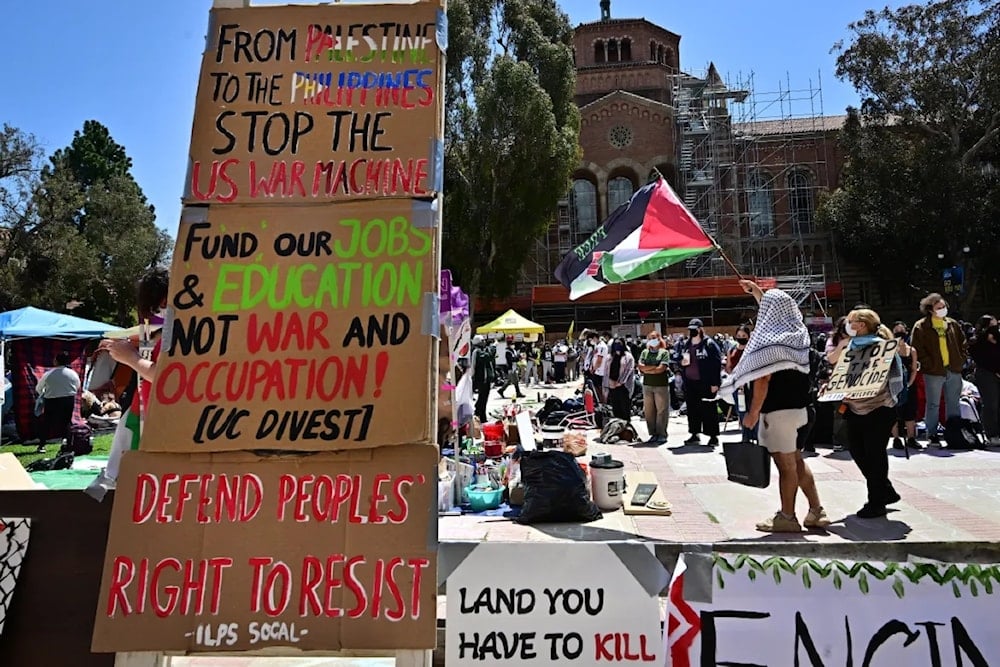US campus protests persist despite crackdowns, mass arrests
US campus protests standing in solidarity with the people of Gaza have faced adversity in the form of abuse and police brutality.
-

Pro-Palestinian students protest at an encampment on the campus of the University of California Los Angeles, or UCLA. (AFP)
Pro-Palestine protests have swept university campuses across the United States for the past three weeks, with calls for the divestment from "Israel" or Israeli-affiliated institutions and an immediate ceasefire in Gaza.
As student protests and movements increasingly gained momentum, arrests were made as police tried to thwart their efforts, and the government mobilized to introduce legislation that would ultimately punish those participating.
Pro-Palestine advocates have established encampments or conducted sit-ins at more than 100 college campuses across approximately 40 states.
In response, authorities have made nearly 3,000 arrests, amid employing tear gas, instances of police brutality, and even firing rubber bullets at peaceful student protesters.
Challenging misconceptions
Henna Ayesh, a member of the DePaul University Divestment Coalition, said as quoted by Press TV that while universities educate about significant historical events like the Civil Rights Movement and the Trail of Tears, as well as various uprisings and protests, they are troubled when students act upon what they have been taught and advocate for change.
She emphasized the sadness in the portrayal of students as violent when many of the encampments serve as educational spaces, discussing topics such as Palestine.
Ayesh highlighted the misconception perpetuated by Western media that these protests are violent and obstructive to education, which she argues is not the case.
"And I think a lot of time that gets very twisted in, especially in Western media where they have framed us as if we are violent and we are aggressive and where prohibiting people from going to school, when that's not the case," she stressed.
Encampment movement: A resurgence of protest in the US
At a university encampment in Chicago, protesters expressed a sense of humble pride in their role in effecting historic change, Press TV reported.
The students expressed hope that college administrators would refrain from using police violence, expulsions, or any efforts to sabotage the futures of the protesters.
Parveen Mundi, the Student Body President at DePaul University, remarked as quoted by Press TV that the encampment movement represents a unique form of protest not seen in the United States for a considerable period and is now gaining traction nationwide.
Mundi suggested that the resistance faced may stem from certain institutions being unfamiliar with addressing questions of free speech in this context. She lamented that the exception to free speech appears linked to discussions surrounding Palestine.
"I really think that the pushback that we're seeing is [due to] the fact that some institutions just haven't had to confront questions of free speech like that before. And it's really unfortunate that the exception is free speech and Palestine," she succinctly stated.
Read more: Pro-Palestine protests staged during college commencements

 3 Min Read
3 Min Read








